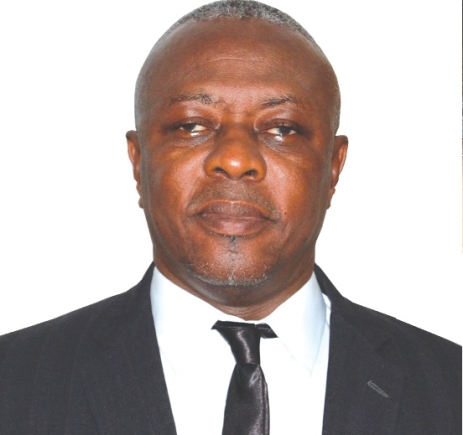
National Service: Exorcising ‘ghosts’ from payroll
The bad news of “ghost names” has undoubtedly become a serious dent in the National Service Authority's (NSA) image, an important state institution that has achieved so much over the years by mobilising, deploying and training the youth from tertiary institutions in a year’s mandatory national service.
Ghanaians first heard the bad news of “ghost names” in 2014. Media reports said GH¢7.9 million had been paid to 22,612 non-existent service persons in more than 100 districts in July 2024 alone.
The news spread like wildfire and Ghanaians expressed disgust and disapproval of the story.
Subsequently, 163 staff, including the executive director, four management staff, all 10 regional directors and 149 metropolitan, municipal and district managers of the National Service Scheme (NSS) were summarily dismissed by the Authority’s management on the advice of the governing board.
“How did this happen?” Investigations revealed that the enrolment mode of prospective national service personnel and the payment system provided fertile grounds for the “ghost names” to thrive that cost tax payers GH¢28m monthly.
Management then introduced the new payment system for the service personnel allowances through the e-zwich platform. This new system quickly restored some sanity to the payment system, with the expectation of no new ghost names.
However, a couple of weeks ago, Ghanaians once again heard of another allegation by the Media Foundation for West Africa (MFWA), publishers of the Fourth Estate, of “ghost names” on the national service payroll. Many have expressed shock at this latest story, which broke out in November 2024.
Interestingly, the story came after the NSA introduced the online registration system called the NSS Metric App in the 2021/2022 service year to enhance the registration of prospective service personnel.
 The writer
The writer
Allegations
With more than 14,000 “ghost names” removed from the payment system since introducing the App; it has also made registration smooth and simple, eradicating the situation where personnel had to queue for days at NSS district offices.
The metric App has artificial intelligence security, which has precluded people from impersonating and saved Ghana millions of cedis.
Even though the Authority has denied the allegations and described them as baseless, the Fourth Estate has petitioned the Office of the Special Prosecutor to investigate them.
On Friday, December 20, the Fourth Estate submitted a dossier on its inquiry on the alleged national service “ghost names” to the ORAL Committee. The Authority’s governing board at its emergency board meeting on Thursday, December 12, 2024, requested the National Investigation Bureau to investigate the allegations.
While we await the outcome of the investigations from these two anti-corruption bodies, it is important to ponder over a few issues.
Perhaps the Authority might want to justify why its entire IT system is placed under the absolute control and operations of an external IT consultant, such that even the Authority’s experienced permanent staff do not have access to the back end of the IT system and data.
With the introduction of some new modus operandi by the external IT consultant regarding the registration of service personnel, administrators of accredited tertiary institutions could sit in the comfort of their offices and upload the class lists of final-year students as prospective national service personnel.
Many are asking, “How sure are we that only genuine final-year students would be uploaded onto the system?” So, with this, how could the Authority’s internal IT staff authenticate the lists of final-year students when an external IT consultant controls the data?
This is not to suggest that the external IT consultant is culpable in this matter, but one cannot also discount the possibility of unwanted (ghost) names in the system; otherwise, how could it be that even after the introduction of the digitalisation of the registration process, more “ghost names” still found their way into the system, and later removed, saving the country huge sums of money?
It is painful that the Authority’s name has been soiled so badly with these last days of “ghost names” scandal allegations. I, therefore, wish to suggest that a thorough audit of the Authority’s IT and data systems must be conducted to ascertain the veracity or otherwise of all the people on the system and to determine how they got onto the system to become “ghosts”, if any.
How do we get out?
Again, the practice of an external consultant having absolute control of the Authority’s IT system and data must be stopped.
Consultants' engagement may be necessary but must complement the Authority’s internal IT and not completely take over the entire IT system. This way, the Authority’s staff could be held accountable for any infractions that might result in any further “ghost names.”
Why should the NSS be in the news for such negative stories to erode all the good initiatives, programmes, projects and activities to assist young graduates in unearthing their potential to secure sustainable jobs after their mandatory national service?
This way, the rate of unemployment and under-employment could be reduced drastically. As for “ghost names”, they don’t help at all in any way, and must, therefore, never again have a place in the Authority’s system.
The writer is a former Director of Corporate Affairs, NSA.
E-mail:
